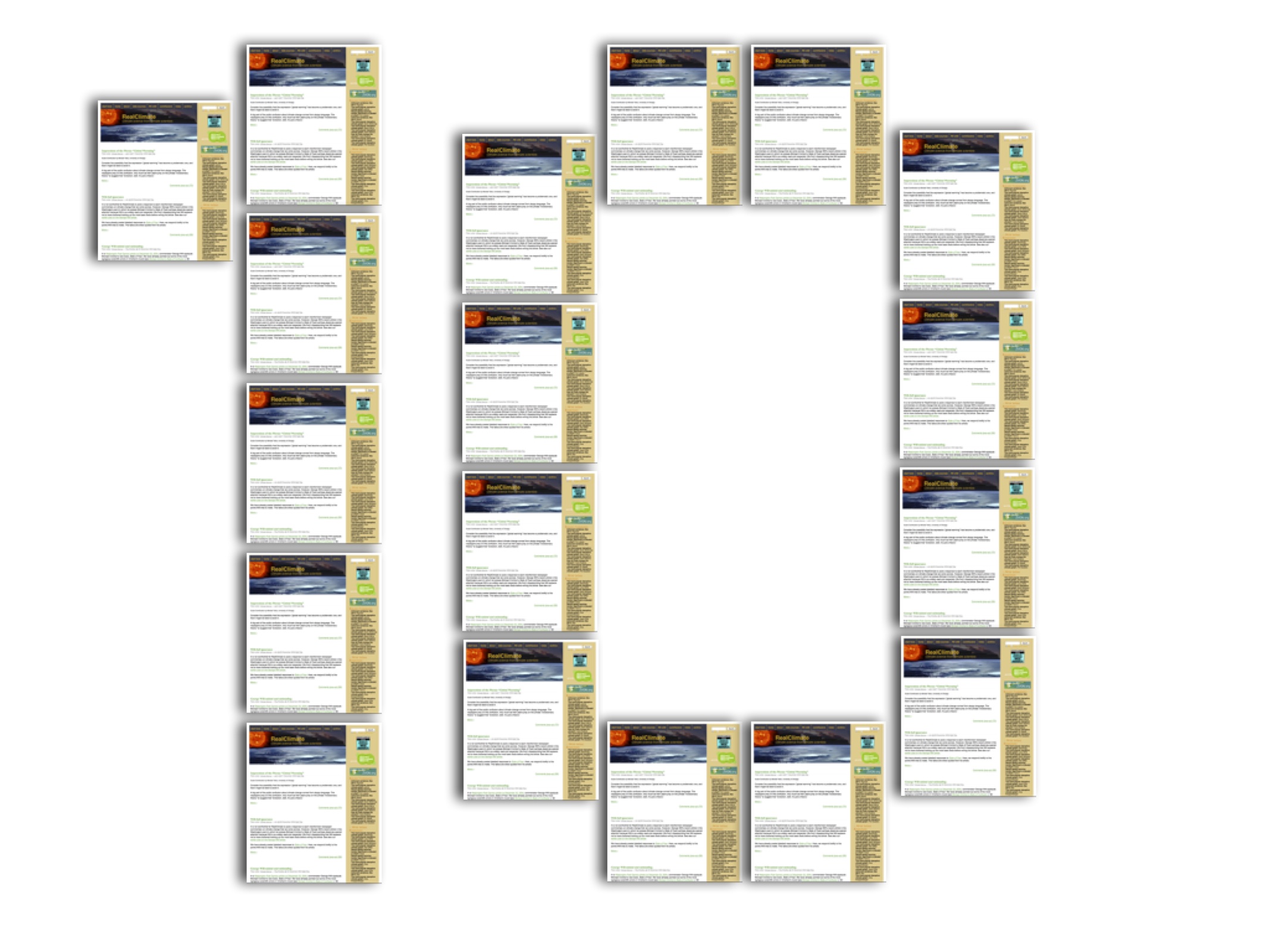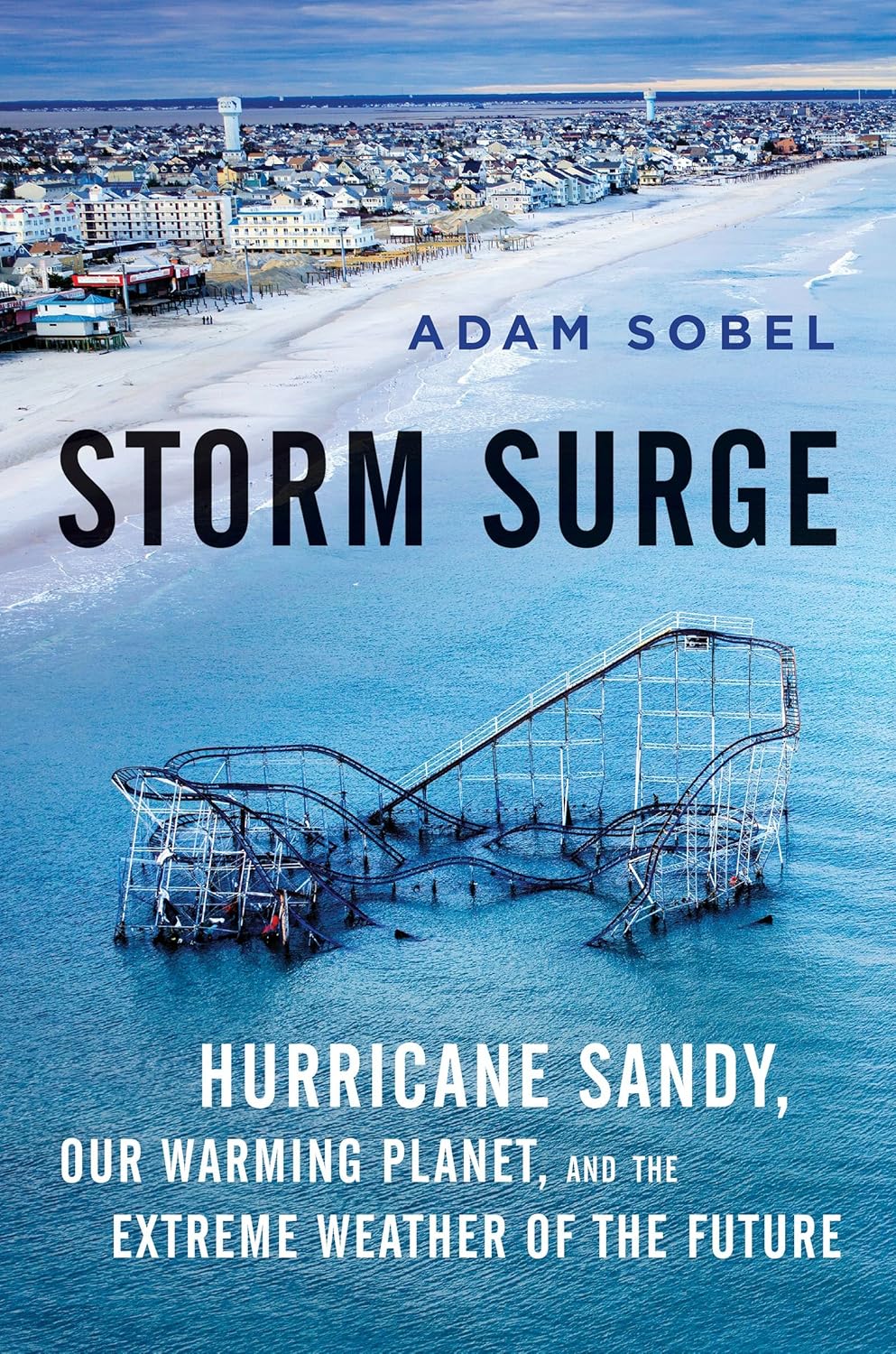 As well as the current core team – David Archer, Eric Steig, Gavin Schmidt, Mike Mann, Rasmus Benestad, Ray Bradley, Ray Pierrehumbert, Stefan Rahmstorf – this blog has had input from many others over the years:
As well as the current core team – David Archer, Eric Steig, Gavin Schmidt, Mike Mann, Rasmus Benestad, Ray Bradley, Ray Pierrehumbert, Stefan Rahmstorf – this blog has had input from many others over the years:
The 90+ guest contributors and previous team members who bring a necessary diversity of experience and expertise to the blog: Abby Swann, Alan Robock, Anders Levermann, Andrew Monaghan, Andy Baker, Andy Dessler, Axel Schweiger, Barry Bickmore, Bart Strengers, Bart Verheggen, Beate Liepert, Ben Santer, Brian Helmuth, Brian Soden, Brigitte Knopf, Caspar Ammann, Cecilia Bitz, Chris Colose, Christopher Hennon, Corrine LeQuere, Darrell Kaufman, David Briske, David Karoly, David Ritson, David Vaughan, Dim Coumou, Dirk Notz, Dorothy Koch, Drew Shindell, Ed Hawkins, Eugenie Scott, Figen Mekik, Francisco Doblas-Reyes, Frank Zeman, Geert Jan van Oldenborgh, Georg Feulner, Georg Hoffmann, George Tselioudis, Jacob Harold, Jared Rennie, Jason West, Jeffrey Pierce, Jim Bouldin, Jim Prall, John Fasullo, Joy Shumake-Guillemot, Juliane Fry, Karen Shell, Keith Briffa, Kelly Levin, Kevin Brown, Kevin Trenberth, Kim Cobb, Kyle Swanson, Loretta Mickley, Marco Tedesco, Mark Boslough, Martin Manning, Martin Vermeer, Matt King, Matthew England, Mauri Pelto, Michael Bentley, Michael Oppenheimer, Michael Tobis, Michelle L’Heureux, Natassa Romanou, Paul Higgins, Peter Minnett, Phil Jones, Pippa Whitehouse, PubPeer, Raimund Muscheler, Rein Haarsma, Richard Millar, Robert Rohde, Ron Lindsay, Ron Miller, Russell Seitz, Sarah Feakins, Scott Mandia, Scott Saleska, Simon Lewis, Spencer Weart, Stephen Schneider, Steve Ghan, Steve Sherwood, Sybren Drijfhout, Tad Pfeffer, Tamino, Terry Gerlach, Thibault de Garidel, Thomas Crowley, Tim Osborn, Tom Melvin, Urs Neu, Vicky Slonosky, William Anderegg, William Connolley and Zeke Hausfather;
The thousands of commenters that have enlivened the conversation and explored many issues in more depth than is possible in the main posts;
The translators of hundreds of posts into Polish, French, Czech, German, Italian, Spanish, Turkish, Mandarin etc;
Miloslav Nic for his “Guide to RC” which provides a comprehensive set of indexes to the content here;
Ryan and the internet service providers at Peer, and now Webfaction, that have helped deal with the many technical challenges and to Environmental Media Services and later, the Science Communication Network, for covering some of those costs;
A sincere thanks to all.
